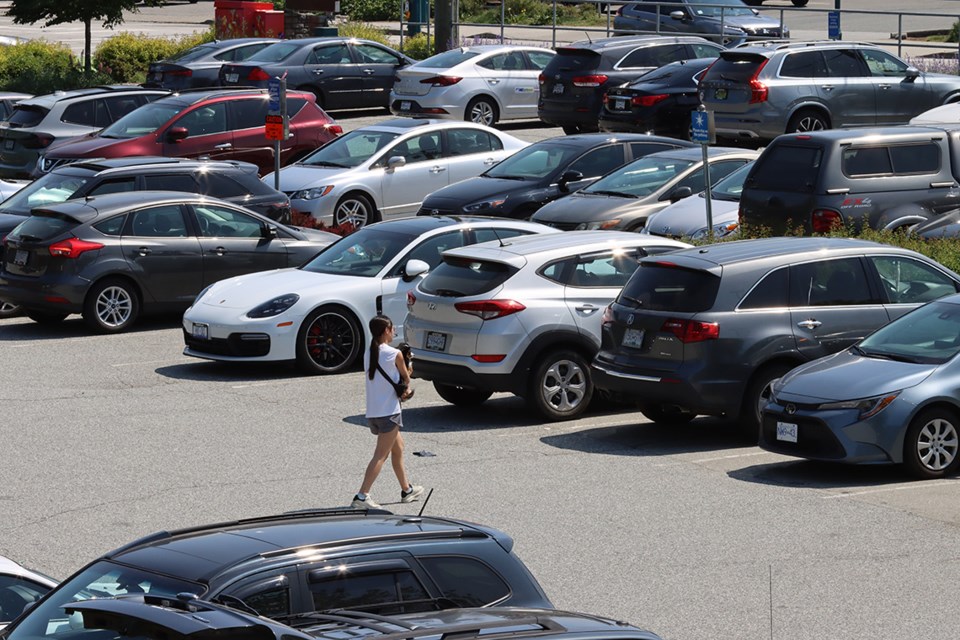The days of parking for free at busy locations in Port Moody like Rocky Point Park could be over by next summer.
Tuesday, Oct. 17, council’s strategic priorities committee tasked staff to proceed with the implementation of pay parking systems at five locations in the city. They are:
- Rocky Point Park
- Esplanade Avenue from Rocky Point Park to Murray Street
- Murray Street from Columbia to William streets
- Ungless Way from Noons Creek Drive to Guildford Way
- commercial parking on Morrisey Street and Suter Brook Way
In a presentation, Jeff Moi, Port Moody's general manager of engineering and operations, said the targeted locations are the busiest in the city and charging for parking will encourage turnover of spots rather than allowing drivers to leave their vehicle for extended periods of time while they go to work for the day or visit the breweries along Brewers Row.
"From an engineering perspective, we want to make sure parking is providing the function it's designed for."
Moi said while pay parking has been considered in Port Moody since as far back as 2003, the city's growth since then, the opening of two SkyTrain stations — one of which has paid parking — and the increasing popularity of places like Rocky Point Park and the breweries along Murray Street have required a "fresh look" at the issue.
"We have lots of unrestricted parking, there’s no control, no management," he told councillors, adding the fees collected will go toward helping the pay parking system cover its own expenses, like the installation and management of pay stations as well as enforcement.
"Revenue generation is a secondary benefit," Moi said.
Coun. Haven Lurbiecki, who cast the only dissenting vote, said pay parking will be an extra burden on residents when they're already feeling the pinch of higher costs for shelter, food and transportation.
"We're in the middle of an affordability crisis," she said. "I just can't [get] behind this."
But other councillors said with more people using Rocky Point Park and visitors coming to enjoy destinations like Brewers Row, the city can't afford not to exert some sort of parking management.
"For a long time, we've treated parking and car infrastructure as free, but it comes with a cost," Coun. Samantha Agtarap said.
Mayor Meghan Lahti said asking people to pay for parking also aligns with Port Moody's goals for climate action by encouraging them to consider alternate ways of getting to their destination, like cycling or transit.
"We have to put our money where our mouth is around our commitment to climate action," she said, adding it might also be time for Port Moody to look into resurrecting a shuttle bus service that operated between city hall and Rocky Point Park in 2018.
Moi said staff will spend the next few months working on detailed plans for the introduction of pay parking, including its anticipated costs and revenues, and then report back to council early in the new year with an eye to having it in place by next summer.
It will then be monitored annually to determine its impact on turning over spaces as well as the appropriateness of the fees being charged.
Moi said while accommodations can be made for accessibility stalls, he cautioned against the implementation of further exemptions like passes for Port Moody residents as then "we're not solving the issues we're trying to solve."
Coun. Diana Dilworth said the acceptance of pay parking by the community will hinge on educating residents about its purpose and worth.
"They're always complaining about parking and this is one tool to address that problem," she said. "This is the beginning of pay parking in our community."





